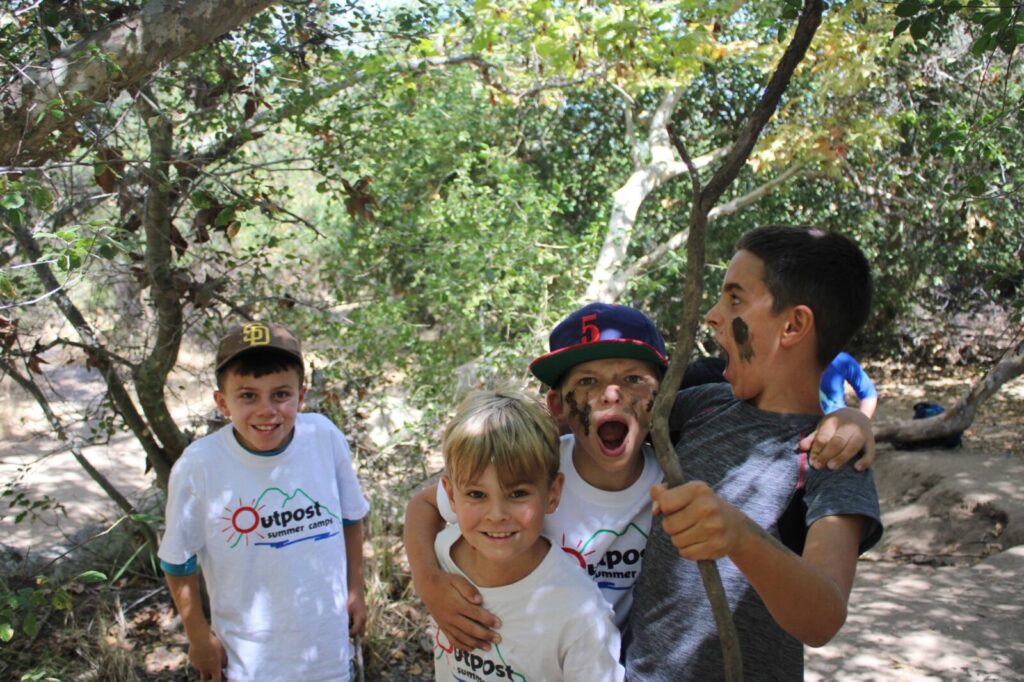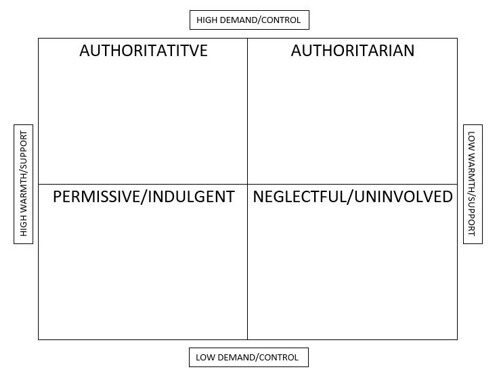
June 22, 2024
Staff have described our “High Warmth, High Control” tool as the most valuable Outpost skill we teach.
*This concept originated directly from the Four Parenting Styles, a quadrant developed by psychology researchers Baumrind and Maccoby & Martin.
Most of us – as people, parents, and/or camp counselors – tend to more easily be warm or more naturally exert control.
- Warmth: the ability to connect with others, show care, and make others feel liked and comfortable. The opposite of warmth is disconnect, coldness, and rigidity.
- Control: the ability to maintain boundaries, impose structure, and be in charge. The opposite of control in this sense would be chaos.

Both warmth and control are equally important for different reasons.
As camp staff and directors, our job is a balancing act of:
- Fun and safety
- Kindness and rules
- Relationships and boundaries
Children aren’t able to have fun when they aren’t safe. They love nice adults, but that kindness feels shallow and shaky without establishment of rules and enforcement of boundaries.
Knowing that an adult is both kind and in charge maximizes children’s enjoyment and connection.
Using the framework of these four quadrants has been a useful lens to evaluate our own and others’ areas of growth. To make it more concrete and easily visualized, we ask staff to identify a person in their own lives who fits each of the first three quadrants as they aim to be more authoritative:

High Warmth, High Control: AUTHORITATIVE
Example: A beloved coach or teacher; “I learned a lot and felt known and liked.”
Low Warmth, High Control: AUTHORITARIAN
Example: A strict teacher; “There was structure and learning but without a personal relationship.”
High Warmth, Low Control: PERMISSIVE
Example: Your friend’s “fun” parent; “They were nice and fun but didn’t enforce any rules.”
Low Warmth, Low Control: NEGLECTFUL (Hopefully, an uncommon style)
Once staff have determined whether they need to focus on increasing their warmth or control, we provide specific strategies and set goals to improve their balance of the two.
A common example is a staff member who is kind and warm but hasn’t established firm enough boundaries. As they improve their control, they are often surprised that campers not only continue to like them (which is often their initial concern) but that campers respect, trust, and like them even more – and that behavior issues often decrease quickly.
We continue to use our “High Warmth, High Control” tool this summer as we create safe and fun camp groups where campers feel both helped and liked!
Dr. Kelly Jones
Executive Director, Outpost Summer Camps
“We don’t have to do all of it alone. We were never meant to.” Brené Brown
*References:
Baumrind, D. (1966). Effects of authoritative parental control on child behavior. Child Development, 37(4), 887-907. Retrieved from: http://persweb.wabash.edu/facstaff/hortonr/articles% 20for%20class/baumrind.pdf.
Maccoby, E.E., & Martin, J.A. (1983). Socialization in the context of the family: Parent-child interaction. In P.H. Mussen (Series Ed.) & E.M. Hetheringtono (Vol. Ed.), Handbook of Child Psychology: Vol. IV. Socialization, Personality and Social Development (4th Ed., pp. 1-101). New York: Wilepy.
